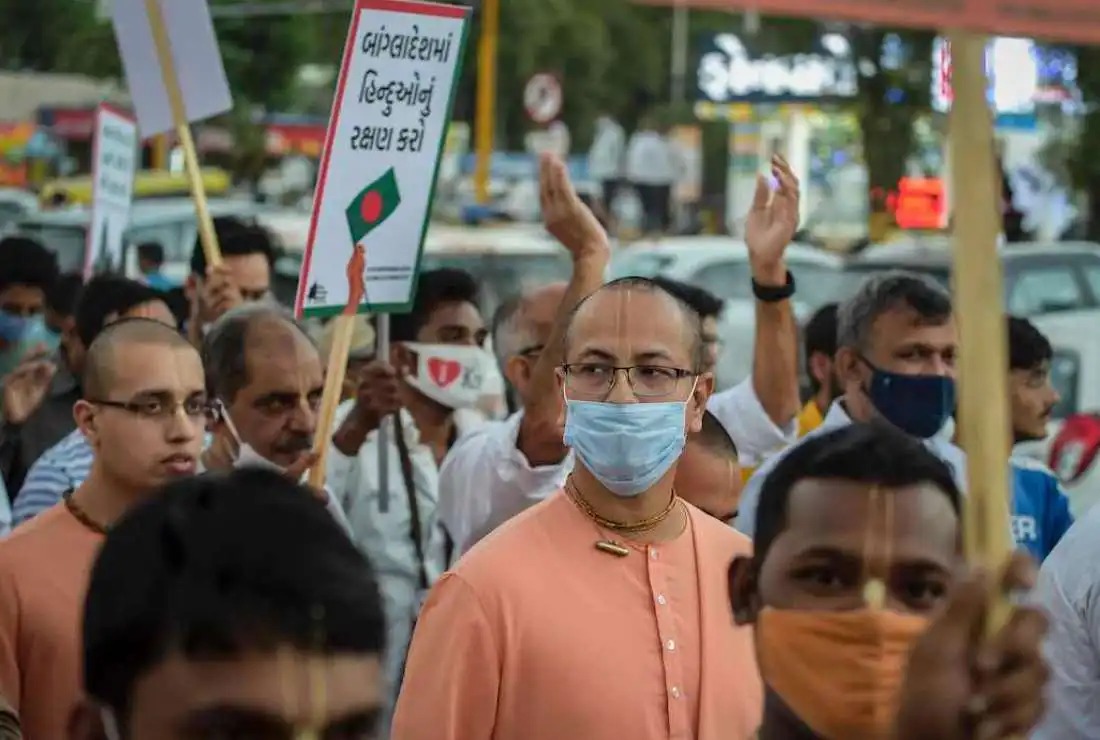
Source UCA
HONG KONG, China--For 17 long years, Mukhtar Mai fought for justice after being gang-raped and paraded naked in a remote village in Pakistan’s Punjab province in 2002.
Mai, who was 33 at the time, began a legal battle against the 14 culprits instead of committing suicide or living in shame for the rest of her life.
The trial judge found six men guilty and sentenced them to death, but Lahore High Court overturned the convictions of five of the men and commuted the sixth man’s death sentence to life imprisonment in 2005.
In 2019, the Supreme Court rejected her review appeal against the acquittals of all except one culprit.
“The respected Supreme Court argued that I was married. So I deserved no respect and justice?” Mai stated in a web show on the eve of International Women's Day on March 8.
She recalled how police found an escape route for the culprits while courts mistreated the victims.
"My children are living in hiding. I have blocked about 300 numbers on my phone. I have become tired of complaining"
“Women die every time a lawyer interrogates them in court in front of the culprits. Many resort to suicides. It’s not easy to fight cases like these … I was even asked who the first one was … I wanted to sink into the earth that moment,” she said.
Mai said she tolerated the humiliation “to prevent another Mukhtar Mai from happening.”
“The victim and her case remain alive till the media and civil society continue to raise the issue,” said the brave woman who became a high-profile campaigner for women's rights in Pakistan.
Her heroic story became the subject of a feature film while her autobiography was a best-seller in France.
Mai used the royalty money and donations along with the compensation money from her case to start three schools, a helpline, a rescue unit and a women’s shelter in Meerwala.
However, her family are still being threatened. “My children are living in hiding. I have blocked about 300 numbers on my phone. I have become tired of complaining,” she said.
The men from the rival clan continue to abuse her, threatening to strip her at the police checkpost near her house. “I shared audio messages with the police last month. A person was arrested but released on bail the next day. Police termed it a case of cybercrime,” Mai said.
Rights activists like Mai continue to fight against the patriarchal notion of "honor" in patriarchal societies that deny women the right to education and health or to choose their partner and have reproductive rights.
Tensions continue to flare up in Pakistan, especially when the Aurat March, a women’s collective, organizes its annual rallies against the violation of women’s rights in Pakistan.
Last year clerics filed blasphemy cases against women marchers for raising slogans and banners that they alleged were anti-Islam. Fortunately, there were no court proceedings.
"YouTube’s clickbait-based system pushes people to create attention-grabbing content. The coverage of Aurat March we see on YouTube is far from reality"
Some 2,000 women rallied in dozens of events marking International Women's Day across the country this year.
Security remained tight as Islamist groups organized a Haya (modesty) March to counter the women exercising their right to self-determination and expression.
Organizers of Aurat March Lahore installed life-sized photos of YouTubers blamed for controversial coverage of the rally last year.
Each cardboard cut-out displayed the name of the channel, direct quotes from their coverage and a QR code to access the contentious content.
“Our art piece: journalism must be ethical. YouTube’s clickbait-based system pushes people to create attention-grabbing content. The coverage of Aurat March we see on YouTube is far from reality. These YouTube ‘journalists’ sensationalized, misrepresented and harassed participants in the Aurat March last year,” they stated in a tweet.
“They endangered the lives of the marchers. They want ratings, let’s make them viral,” a banner near Lahore Press Club stated.
Peter Jacob, former executive secretary of the Catholic bishops' National Commission for Justice and Peace, who attended the Lahore march, said: “It was a form of their freedom of expression and resilience even if a certain quarter of journalists has critical views. The participants are entitled to their right to reply in a non-violent and peaceful way,” he told UCA News.
Archbishop Joseph Arshad, president of the Catholic Bishops' Conference of Pakistan, agreed. “Unfortunately women are denied their basic and natural rights in our families and society. She is the victim of violence. Her dignity is trampled. She is kept as a slave. Others decide for her life,” he stated in a press release.
Christian NGOs in Lahore and Faisalabad held protest camps on March 8 against forced conversions and marriages of minority underage girls.
Jacob hoped that the voices seeking gender equality and justice will continue to be raised despite the challenging environment and help overcome the human rights abuses against women, children and other vulnerable groups.








0 Comments
LEAVE A REPLY
Your email address will not be published